A poorly maintained HVAC system can drive up energy costs by as much as 30 percent during extreme temperatures, compromise indoor comfort, and shorten equipment lifespan. Seasonal HVAC maintenance ensures home and business environments stay reliable, efficient, and safe throughout summer heat, winter chill, and transitional months.
This guide explains why regular tune-ups are crucial, what to expect from summer air conditioning service, how to carry out fall furnace inspections, best practices for winter heating repair, the benefits of spring HVAC checks on air quality, the value of year-round maintenance plans, and how Engle Services Heating and Air – your local HVAC experts – supports every season with prompt, professional solutions.
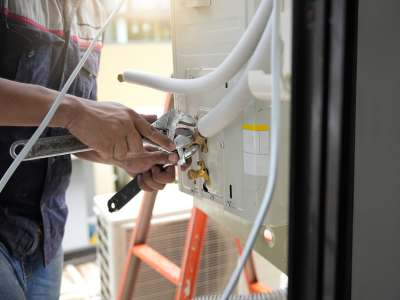
Why Is Seasonal HVAC Maintenance Essential for Home Comfort and Energy Efficiency?
Seasonal HVAC maintenance is a planned service routine that cleans, inspects, and optimizes heating and cooling systems to deliver consistent comfort. By identifying wear, tuning controls, and replenishing refrigerant or lubricants, technicians improve airflow, curb energy waste and prevent breakdowns. For example, a mid-summer air conditioning tune-up can restore cooling capacity, reducing runtime and energy bills.
How Does Regular HVAC Maintenance Improve Energy Efficiency?
Regular maintenance reduces friction in moving parts, restores refrigerant levels and calibrates thermostats to recommended settings, which directly cuts energy consumption and monthly utility costs.- Airflow Balancing: Technicians adjust dampers and clean coils to ensure uniform cooling.
- Refrigerant Validation: Checking and recharging refrigerant prevents overworking the compressor.
- Control Calibration: Precise thermostat settings avoid temperature overshoot.
The Impact of Regular HVAC Maintenance on Energy Efficiency and System Lifespan
Routine HVAC maintenance is crucial for optimizing system performance, leading to significant energy savings and extended equipment longevity. The U.S. Department of Energy reports that regular maintenance can reduce energy consumption by 5% to 15%, while neglected systems may lose up to 30% of their efficiency. Furthermore, well-maintained HVAC systems can last 15-25 years, a considerable increase compared to the 10-12 years for unmaintained units.
What Are the Risks of Skipping Seasonal HVAC Tune-Ups?
Neglecting seasonal checks leads to reduced airflow, frozen coils, uneven temperatures and unexpected failure under load. Mechanical stress from clogged filters or unsealed ductwork increases utility bills and heightens the risk of expensive emergency repairs, especially during peak demand.
How Does Seasonal Maintenance Extend HVAC System Lifespan?
Proactive maintenance uncovers minor leaks, worn belts and loose electrical connections before they escalate. Early replacement of filters and lubrication of motors reduces strain on compressors and fans, extending overall system longevity by up to ten years and protecting homeowner investment.
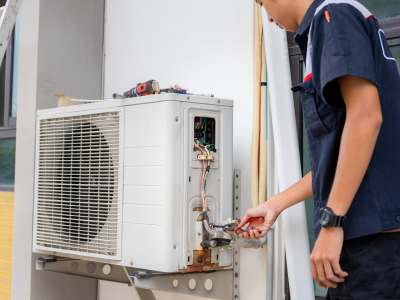
What Does Summer Air Conditioning Service Include for Central Alabama and Fort Walton Beach?
A comprehensive summer air conditioning service blends mechanical inspection, refrigerant optimization and control adjustments to tackle Alabama’s intense heat. Technicians verify system readiness to deliver reliable, energy-efficient cooling when temperatures soar.
How Do You Prepare Your AC for Alabama’s Summer Heat?
Summer preparation involves cleaning condenser coils, clearing debris around outdoor units and testing capacitor health to maintain peak performance. This process prevents system freeze-ups and ensures steady airflow throughout living spaces.
What Are the Signs Your Air Conditioner Needs Summer Repair?
Households should watch for reduced cooling output, inconsistent room temperatures, unusual noises or steadily rising energy bills, which indicate low refrigerant, blocked coils or failing compressors requiring prompt attention.
How Does Refrigerant Recharge and Thermostat Calibration Improve Cooling?
Recharging refrigerant restores proper pressure levels that drive efficient heat exchange, while calibrating thermostats ensures accurate temperature control. Together, these adjustments reduce compressor runtime and maintain desired comfort without spikes in electricity use.| Warning Sign | Indicator | Recommended Action |
|---|---|---|
| Frequent Cycling | HVAC turns on/off every few minutes | Evaluate thermostat calibration and airflow |
| Rising Fuel Bills | Noticeable increase in heating costs | Arrange diagnostic tune-up |
| Uneven Room Temperatures | Cold spots in multiple rooms | Inspect duct sealing and damper balance |
| Unusual Noises | Rattling or humming during operation | Check blower bearings and motor integrity |
When Should You Schedule Emergency AC Repair in Summer?
Emergency AC repair becomes essential when systems fail to start, emit burning smells or leak water indoors. Immediate service calls prevent property damage from moisture and restore cool air before health risks arise during extreme heat.
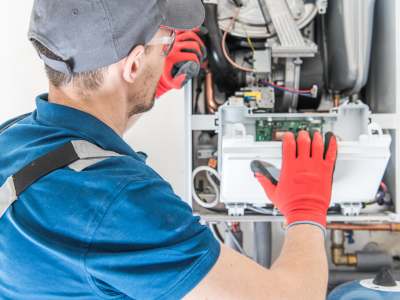
How to Perform a Fall Furnace Inspection and Heating Tune-Up for Safe Winter Use?
A fall furnace tune-up combines safety checks and mechanical adjustments that ready heating equipment for winter operation. By inspecting flame sensors, testing heat exchangers and sealing duct joints, technicians ensure efficient, safe distribution of warmth.
What Are the Key Components Checked During a Fall Furnace Tune-Up?
Fall inspections cover burner assembly, ignition systems, safety controls and blower motors. Technicians verify fuel lines, test pilot lights or electronic ignition, and confirm proper airflow through filter and duct inspection.- Burner Flame Analysis
- Ignition & Safety Control Testing
- Blower & Motor Lubrication
- Filter Replacement & Airflow Verification
How Does Furnace Maintenance Prevent Carbon Monoxide Risks?
Maintaining clear ventilation passages and verifying heat exchanger integrity guard against flue gas leaks and carbon monoxide infiltration. Proper adjustments to gas or oil valves reduce incomplete combustion, safeguarding occupants from silent, toxic exposure.Preventing Carbon Monoxide Poisoning Through Furnace Maintenance
Annual furnace inspections are essential for preventing residential carbon monoxide (CO) poisoning, a leading cause of poisoning death and injury in the United States. Faulty furnaces, particularly those with cracked heat exchangers or blocked vents, can emit dangerous levels of this odorless, colorless gas. Regular maintenance checks by a qualified technician ensure proper venting and safe combustion, significantly reducing the risk of CO leaks.
When Should You Replace Air Filters and Inspect Heat Pumps in Fall?
Replacing disposable filters before the first heating cycle ensures unobstructed airflow and cleaner indoor air. Simultaneous heat pump inspections identify refrigerant balance issues and reverse valve operation, avoiding mid-winter performance lapses.
What Are the Benefits of Ductwork Sealing Before Winter?
Sealing ductwork stops warm air leaks into unconditioned spaces, improving furnace efficiency by up to 20 percent and reducing energy bills.Energy Savings Achieved Through Ductwork Sealing
Sealing leaks in ductwork can lead to substantial energy savings and improved system efficiency. A study conducted by the Comfort Institute in partnership with the Greater Cincinnati Energy Alliance found that sealing ducts in conditioned spaces resulted in a 5% to 15% reduction in energy consumption for heating and cooling. This process also reduced overall home envelope leakage by an average of 11.4%.
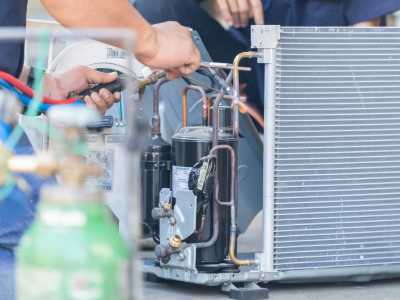
What Are the Best Practices for Winter Heating System Repair and Installation?
Winter heating repair and installation require thorough diagnostics, precise component selection and secure installation that matches home size and climate demands. Proper sizing and calibration prevent short-cycling, uneven heating and wasted fuel.
How Can You Troubleshoot Common Winter Heating Problems?
Address lost heat or erratic cycling by inspecting thermostats, clearing condensate traps and testing limit switches. A systematic approach to isolating thermostat wiring, blower operation and fuel supply ensures efficient resolution.
When Is It Time to Replace Your Furnace or Boiler?
Replacement becomes necessary when repair costs exceed 50 percent of a new system, or when units over 15 years old exhibit repeated failures. Upgrading to a high-efficiency furnace or boiler can yield long-term savings and enhanced comfort.| Service Task | Purpose | Benefit |
|---|---|---|
| Condenser Coil Cleaning | Remove dirt and debris | Prevents overheating and efficiency loss |
| Refrigerant Level Check | Verify pressure and volume | Ensures consistent cooling performance |
| Thermostat Calibration | Align sensor readings with actual temps | Avoids overshooting set temperatures |
| Air Filter Replacement | Eliminate airflow obstructions | Improves air quality and reduces strain |
How Does Emergency Heating Repair Protect Your Home in Winter?
Emergency heating repair restores warmth swiftly when systems fail under freezing conditions. Rapid response service prevents frozen pipes, indoor discomfort and health hazards for vulnerable occupants.
What Are Energy-Saving Tips for Winter Heating Systems?
Implement programmable thermostats, seal attic and crawl-space leaks, and insulate ductwork to reduce heat loss. Seasonal maintenance combined with home energy audits maximizes efficiency and comfort while lowering utility expenses.
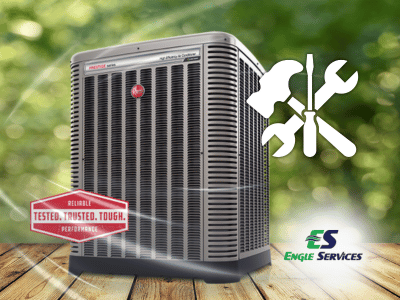
How Does a Spring HVAC Tune-Up Improve Indoor Air Quality and System Performance?
A spring HVAC tune-up refreshes cooling and heating components, removes accumulated debris and addresses humidity control to enhance indoor air quality. Cleaning coils, replacing filters and inspecting condensate drains reduce allergen buildup and mold growth.
What Cleaning Tasks Are Included in a Spring HVAC Check?
- Coil and blower compartment cleaning
- Drain pan and condensate line flushing
- Filter replacement with high-MERV options
- Verification of refrigerant pressures
How Does Spring Maintenance Help Reduce Allergens and Improve Air Quality?
By removing dust, pollen and microbial growth from ducts and coils, spring tune-ups lower allergen circulation and promote healthier indoor environments. Enhanced filtration and UV purification options further combat mold and bacteria.
When Should You Schedule Preventative AC Maintenance in Spring?
Schedule preventative checks as outdoor temperatures consistently reach 60 °F to 65 °F, allowing technicians to verify system readiness before cooling demands surge. Early service avoids mid-summer delays and emergency calls.
How Does Spring HVAC Service Prepare Your System for Summer?
Spring tune-ups validate coolant levels, test electrical connections and balance airflow, laying the groundwork for reliable, uninterrupted cooling in the months ahead.
What Are the Benefits of HVAC Maintenance Plans for Year-Round Seasonal Care?
HVAC maintenance plans provide scheduled inspections, priority service and cost-saving discounts that simplify year-round comfort management. Enrolling in a plan ensures consistent performance, budget predictability and extended equipment life.
How Do Maintenance Plans Save Money and Extend System Lifespan?
Plans bundle seasonal tune-ups at discounted rates, reduce emergency repair costs and uphold manufacturer warranties, collectively cutting lifetime ownership expenses and delaying major replacement outlays.
What Priority Services and Discounts Are Included in Maintenance Plans?
Members receive priority scheduling during peak seasons, waived diagnostic fees for covered repairs and exclusive discounts on parts and system upgrades, ensuring faster response and lower service bills.
How Often Should You Schedule Seasonal HVAC Services?
For optimal reliability, schedule professional maintenance twice yearly—before summer cooling and before winter heating seasons—supplemented by filter changes every 1–3 months.
How Do Maintenance Plans Support Emergency Service Availability?
Plan participants gain guaranteed emergency service windows, ensuring technicians arrive promptly during system failures in extreme weather, minimizing downtime and discomfort.
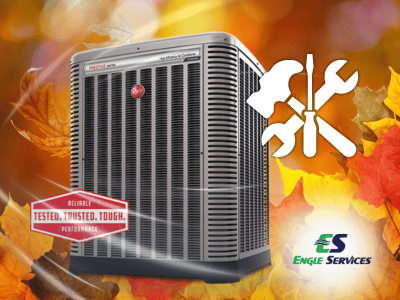
How Does Engle Services Heating and Air Provide Local Expertise for Seasonal HVAC Needs in Central Alabama and Fort Walton Beach?
Engle Services Heating and Air provides local homeowners and businesses with customized seasonal HVAC solutions, leveraging regional climate insights and over 20 years of service excellence.
What Makes Engle Services Reliable for Seasonal HVAC Maintenance?
Our certified technicians follow industry best practices, use advanced diagnostic equipment and adhere to ACCA guidelines to deliver thorough tune-ups and lasting repairs that protect comfort and conserve energy.
How Do Local Climate Conditions Affect Seasonal HVAC Service Requirements?
High summer humidity in Central Alabama demands precise dehumidification control, while coastal salt air near Fort Walton Beach accelerates coil corrosion. We tailor maintenance schedules and component choices to these environmental factors.
What Emergency HVAC Services Are Available During Peak Seasons?
We offer 24/7 emergency repair for air conditioning breakdowns in summer and furnace failures in winter, ensuring rapid response that safeguards property and health when comfort is critical.
Seasonal HVAC maintenance represents an essential investment in comfort, efficiency and safety. By following summer, fall, winter and spring service recommendations, homeowners protect equipment, lower energy costs and enjoy reliable climate control all year. Enroll in a maintenance plan, schedule your next inspection with Engle Services Heating and Air, and experience the benefits of proactive, professional care for your heating and cooling systems.
Engle Services offers Seasonal HVAC Maintenance and Aeroseal Duct Sealing in Sylacauga, Talladega, Birmingham, Shelby County (Hoover, Chelsea), Alabaster, Pell City, Dadeville, Wetumpka, Montgomery, Fort Walton Beach, FL
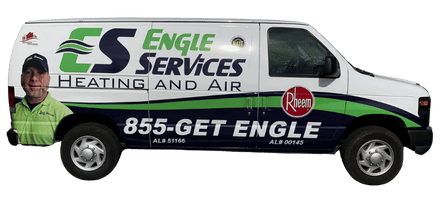 Ready to schedule with our team of HVAC Technicians, Electricians, and Plumbers?
Schedule an appointment online or give us a call at (855) GET-ENGLE
Ready to schedule with our team of HVAC Technicians, Electricians, and Plumbers?
Schedule an appointment online or give us a call at (855) GET-ENGLE
